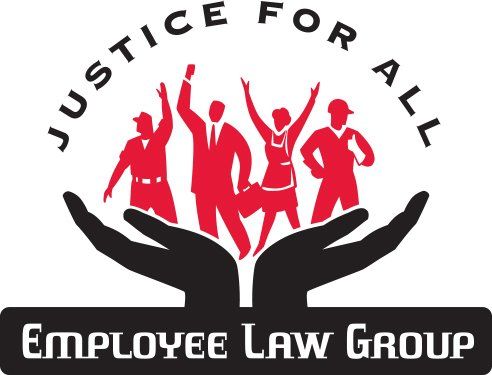- WHO WE HELP
- ABOUT
- GET STARTED
-
CASES WE TAKE
- UNPAID WAGES
- CLASS ACTION SUITS
- FAMILY & MEDICAL LEAVE
- PREGNANCY DISABILITY LEAVE
- HARASSMENT
- NEGOTIATION OF SEVERANCE
- EMPLOYMENT CONTRACT NEGOTIATION
- WORKPLACE CLOSURES
- DEFAMATION OF CHARACTER
- BAD REFERENCES
- EXPENSE REIMBURSEMENT
- ILLEGAL DEDUCTIONS FROM WAGES
- MINIMUM WAGE VIOLATIONS
- UNPAID OVERTIME
- UNPAID COMMISSIONS
- WRONGFUL TERMINATION
- SEXUAL HARASSMENT
- LOS ANGELES EMPLOYMENT LAWYER
- LOS ANGELES DISCRIMINATION LAWYER
- WHISTLEBLOWER RETALIATION
- FAQs
- BLOG
- CONTACT
Sexual Harassment
Sexual harassment in California workplaces: What you need to know
In California, all unwelcome sexual conduct is considered sexual harassment, regardless of gender and sexual orientation. The harasser does not have to be a different gender to the victim. If people welcome sexual conduct, there is no harassment.
Sometimes, proving whether sexual advances were welcome or unwelcome is challenging, as it comes down to intent, not action. If you are experiencing harassment, protect yourself by keeping a log of unwelcome advances and, if you feel comfortable, sharing your experience with someone you trust who can later vouch for you if needed.
Workplace sexual harassment can be conducted by a variety of people in an office or work environment. Bosses, executives, directors, customers, vendors, co-workers, contractors, and property managers can all be culprits and victims of workplace sexual harassment.
Harassment falls into two categories: ‘quid pro quo’ and ‘hostile work environment.’ In some cases, both categories apply. Let’s take a closer look.
Quid pro quo sexual harassment
‘Quid pro quo’ – which means ‘this for that’ – sexual harassment occurs when a supervisor or other authority figure in the workplace demands sexual favors in exchange for an employee benefit, such as a raise or promotion. In addition, if an employer threatens to fire an employee unless they provide sexual favors, that is also quid pro quo harassment.
Quid pro quo sexual harassment can be explicit – for example, your employer verbally promises to assign you to your preferred project in exchange for sexual interaction – or implied.
Quid pro quo sexual harassment can be nuanced, too. For example, let’s say a sexual relationship in the workplace starts consensually between an employee and supervisor, and the employee wishes to end the relationship. If the supervisor threatens to use their authority to disadvantage the employee if the sexual relationship does not continue, they have committed quid pro quo sexual harassment.
However, keep in mind that if the authority figure doesn’t follow through on their threat, no quid pro quo harassment has occurred. Instead, it might be a case of hostile work environment harassment.
To prove that you have experienced quid pro quo harassment, you’ll need to demonstrate the following:
- That you worked for, provided services to, or applied for a job with the defendant
- A working condition was made dependent – explicitly or implicitly – on sexual favors involving the defendant or one of the defendant’s agents
- The defendant or one of the defendant’s agents made unwelcome sexual advances
- You were harmed because of the defendant’s harassing behavior
Sexual harassment leading to a hostile work environment
Unwanted sexual conduct can result in a hostile work environment. You might have a claim if you have experienced a scenario similar to the following examples:
- Your boss’s unwelcome, sexually motivated, or charged comments are pervasive enough to alter the conditions of your workplace.
- A co-worker has made unwanted sexual advances.
- You are continuously treated differently from other workers because of your gender.
Hostile work environment sexual harassment claims must include severe and pervasive unwelcome sexual conduct. A jury often decides the level of severity and pervasiveness.
The harassment cannot be an isolated incident, nor can it be occasional or trivial. Of course, even so-called jokes and off-handed comments can cause discomfort and harm. If you are unsure whether your specific circumstances constitute sexual harassment, please don’t hesitate to seek professional guidance.
Can quid pro quo result in a hostile work environment?
Yes. If a boss, supervisor, or other authority figure treats an employee favorably in exchange for sexual conduct, the working environment may become hostile for other employees.
For example, a supervisor has an affair with one of his female subordinates. As a result, she is ‘rewarded’ with bonuses that do not reflect her workplace performance. Other employees can claim that they are unfairly disadvantaged by this arrangement, resulting in a hostile work environment.
Sexual harassment and workplace productivity
According to the California Fair Employment and Housing Act’s (FEHA) definition of harassment, harassing behavior must interfere with the victim’s work performance. However, you can still prove that you have experienced sexual harassment even if your productivity hasn’t suffered in the process , thanks to amendments made in 2018.
While you don’t need tangible evidence of productivity decline, you do need to show that the harassing behavior has changed your workplace conditions in a way that makes your job more challenging.
When do I need an employment lawyer?
If you have been sexually harassed in your office or another workplace environment, you may have a claim. You do not need to be an employee or co-worker of the harasser. For example, if you are harassed by a hiring manager, independent contractor, or sales rep from another company, your claim could be legitimate under California law. An employment lawyer can help you map out the next steps, build a strong case, and file a civil lawsuit on your behalf.
An employment lawyer can support you as you navigate legislation and recover compensatory damages – even if you have waived your right to sue or disparage your employer. With the right approach, you can lay claim to:
- Pain and suffering
- Back and front pay
- Damage to reputation
- Emotional harm
- Physical harm
No one should feel unsafe, objectified, threatened, or taken advantage of in their workplace. An experienced and dedicated employment attorney can win you the compensation you deserve and put an end to harassing behavior.
Get expert guidance today
Thirty-eight percent of women in the United States say they have experienced sexual harassment in their workplace.
If you have fallen victim to inappropriate sexual conduct in a professional setting – regardless of your gender – you are not alone. We can help you win the compensation you deserve.
Get in contact if you reside in Redondo Beach, Torrance, Santa Monica, Inglewood, Los Angeles, or surrounding areas. Our compassionate team is ready to fight for your rights. Schedule your one-on-one confidential consultation today.









EMPLOYEE LAW GROUP | JUSTICE FOR ALL
21250 Hawthorne Blvd. Suite 500, Torrance CA, 90503
500 Capitol Mall, Suite 2350, Sacramento, CA, 95814

